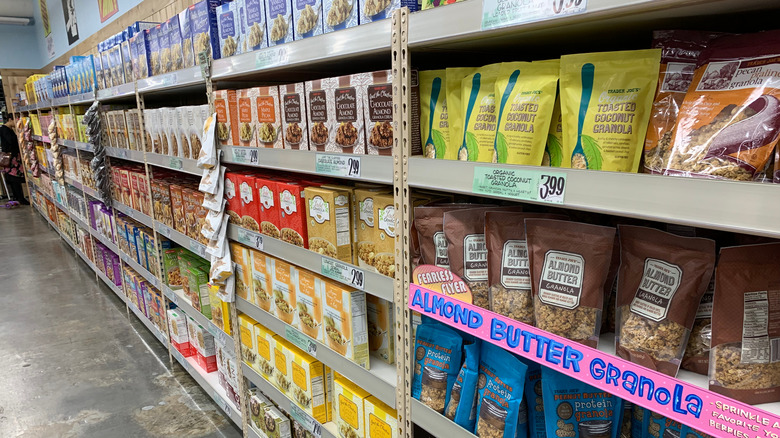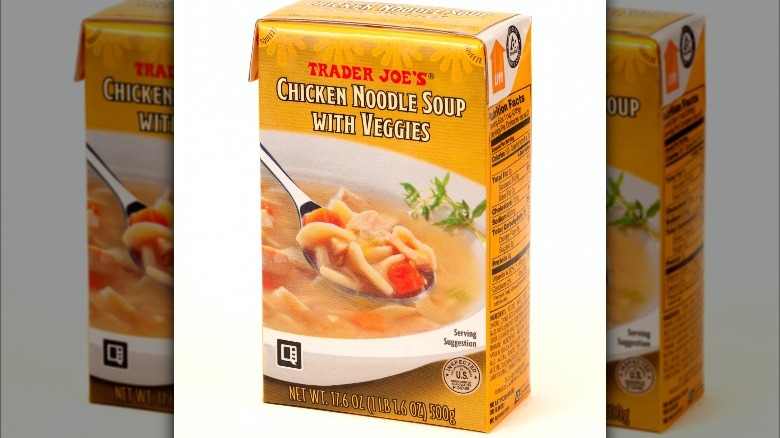What You Should Know About Trader Joe's Food Labels
Over the last decade or so, Trader Joe's has really become a mecca for health and budget-conscious shoppers. Of course, the grocery store's impressive catalog of seasonal delights doesn't hurt either, especially around the holidays. But on a more serious note, it's clear that Trader Joe's works really hard to ensure it's offering an inclusive variety of products that all customers can enjoy whether they are vegan, gluten-free, dairy free, or have other dietary needs. The same applies for those who prefer to follow an organic-based diet. There are options at Trader Joe's, and lots of them.
Like many grocery outlets, Trader Joe's sells its own name brand products such as Trader Joe's, Trader Jose's, and Trader Ming's, which all fall under the main Trader Joe's brand umbrella, according to the store's website. In a nutshell, this means that Trader Joe's is solely responsible for the nutritional information located on the back or side of every TJ's owned product. On these private labels is everything from the calorie intake to the grams of sugar all the way down to the ingredient list. Then, there's the fine print.
The four yes's and six no's you'll find on a Trader Joe's label.
According to the official Trader Joe's website, the grocery store's motto is, "We tried it. We like it. If you don't, bring it back for a refund or exchange." Trader Joe's promises that every product, ingredient, or recipe it offers has been thoroughly tested and tasted by the TJ's team. To help keep things factually correct, concise, and on brand, Trader Joe's has developed a 10-tier checklist (organized by yes's and no's), which every TJ's product must abide by in order to make it on the floor.
On a Trader Joe's private label, customers can expect to see a yes to quality ingredients, colors derived only from naturally available products, great pricing, and tasting panel approval. On the flipside, customers can expect to see a no to artificial flavors, artificial preservatives, MSG, genetically modified ingredients, partially hydrogenated oils, and "marketing" costs. From this standpoint, Trader Joe's is the best on the market, quite literally.
Even Business Insider agrees. In late 2019, the outlet conducted an in-depth comparison between Trader Joe's and Whole Foods, arguably the two most popular health-oriented grocery stores out there. The results showed that Trader Joe's was the overall champion for its affordable pricing, charm, and goods. We'd guess the same still rings true today.

